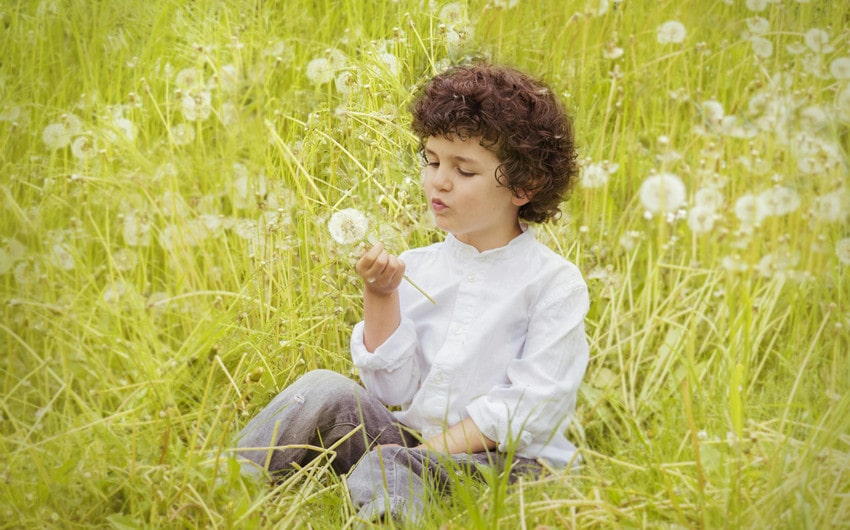Choosing a name for a new baby is a profound moment full of hope and excitement. It’s a chance to dream about who they might become and the adventures they’ll have. For many parents, selecting a name that carries a deep meaning is particularly significant. If you’re looking for a fresh start or want to celebrate a new phase in life, names that mean new beginning offer beautiful symbolism.
These names echo with promises of renewal and fresh opportunities, perfect for a little one about to embark on the journey of life. Let’s explore some of the most inspiring options available.
Boy Names That Mean New Beginning

- Neo (Greek) – Meaning “new.” It’s a popular name that directly reflects the idea of a fresh start.
- Arman (Kazakh, Persian) – Means “hope” or “wish,” symbolizing aspirations for a new beginning.
- Navin (Hindi) – Directly translates to “new,” ideal for a new chapter in life.
- Zoran (Slavic) – Meaning “dawn,” indicative of the start of a new day.
- Altan (Turkish, Mongolian) – Means “red dawn,” symbolizing the beginning of a new day.
- Xavier (Basque) – Although it traditionally means “new house” or “bright,” it’s often associated with starting anew.
- Von (American) – Derived from “Yvonne,” which can mean “new hope,” bringing a modern twist to a traditional meaning.
- Arun (Sanskrit) – Meaning “dawn,” reflecting the beauty and hope of early morning.
- Raanan (Hebrew) – Means “fresh,” perfect for a new beginning or a fresh start.
- Renato (Italian, Spanish) – Derived from “Renatus” meaning “reborn,” commonly used to signify a new beginning.
- Fajr (Arabic) – Meaning “dawn,” this name signifies the start of a new day and, symbolically, a new era.
- Aarush (Hindi) – A modern name meaning “first ray of sun,” symbolizing the start of a new day.
- Vidar (Norse) – In Norse mythology, Vidar is a god of the new era, who survives Ragnarok and represents renewal.
- Janus (Roman) – The god of beginnings, gates, transitions, time, duality, doorways, passages, and endings. He is usually depicted as having two faces, looking to the future and to the past.
- Ordell (German) – Meaning “beginning,” it’s less commonly used but deeply meaningful for a new start.
- Eos (Greek) – Named after the Greek goddess of dawn, representing the start of a new day.
- Roshan (Persian) – Means “light, bright” or “new day,” often used to symbolize enlightenment and new beginnings.
- Anatole (French) – Derived from the Greek word ‘anatolē’ meaning “sunrise,” indicative of new starts and fresh mornings.
- Dagan (Hebrew) – While primarily meaning “grain,” this name can also be associated with birth and new life in agricultural societies.
- Taner (Turkish) – Meaning “born with dawn,” symbolizing the beginning of a new era each day.
- Sahar (Arabic) – Meaning “dawn,” reflecting the promise and hope that comes with the beginning of each new day.
- Vihaan (Sanskrit) – Meaning “dawn” or “the first rays of the sun,” perfect for a new chapter in life.
- Ibtesam (Arabic) – Meaning “smile,” often reflecting a positive new start or change in life.
- Inizio (Italian) – Meaning “beginning,” directly captures the essence of a new start.
- Shachar (Hebrew) – Meaning “dawn,” symbolic of new beginnings and fresh starts each day.
- Asier (Basque) – Meaning “the beginning,” resonating with themes of new starts and hopeful beginnings.
- Vasant (Hindi) – Meaning “spring,” the season often associated with rebirth and new beginnings.
- Aroon (Thai) – Derived from Arun, meaning “dawn,” highlighting new opportunities and a fresh start.
- Kirill (Russian) – Derived from the Greek name Kyriakos meaning “lordly,” and often associated with new leadership or the beginning of a reign.
- Ori (Hebrew) – Meaning “my light,” often interpreted symbolically as the beginning of enlightenment or a new phase of life.
- Aruna (Sanskrit) – Meaning “dawn,” symbolizing a fresh start and the first light of day.
- Ausra (Lithuanian) – Derived from the word meaning “dawn,” signifying new beginnings.
- Dawnson (English) – A modern creation, symbolically linked to “son of the dawn,” suggesting new beginnings.
- Nouvel (French) – Meaning “new,” and used occasionally as a name, it captures the essence of something freshly begun.
- Prabhakar (Sanskrit) – Meaning “one who brings light,” indicative of starting anew or bringing new beginnings.
- Waltzing (German) – An imaginative choice, playing on the dance term, suggesting movement and the start of something joyful and new.
- Zerach (Hebrew) – Meaning “shining” or “dawn,” associated with the light and hope that a new day brings.
- Boreas (Greek) – The name of the north wind in Greek mythology, symbolizing the change brought about by new seasons.
- Matutino (Spanish) – Meaning “morning” or “pertaining to the morning,” often related to the start of new activities.
- Albaer (Dutch) – Derived from “Alba,” meaning “dawn,” suggesting the beginning of a new day.
- Dagny (Nordic) – Although more common in female naming, it means “new day” and carries a strong, fresh-start connotation.
- Neon (Greek) – Meaning “new,” a direct and vibrant expression of the beginning.
- Roxer (Innovative) – A playful, modern name suggesting “rising,” akin to new beginnings or ascensions.
- Vidor (Hungarian) – Meaning “happy” or “joyful,” often associated with the new joy brought by significant life changes.
- Yen (Vietnamese) – Meaning “peaceful,” symbolizing the fresh start or new beginning that comes with peace.
Girl Names That Mean New Beginning
- Aurora (Latin) – Meaning “dawn,” this name represents the fresh start of each new day.
- Zora (Slavic) – Means “dawn,” symbolizing the light and hope that comes with the start of a day.
- Roxana (Persian) – Derived from “Roshanak” meaning “bright” or “dawn,” signifying a new beginning or light.
- Alba (Latin) – Means “dawn,” reflecting the beauty and freshness of the morning light.
- Oriana (Latin) – Meaning “dawn,” this name carries connotations of a new start and hope.
- Renee (French) – Derived from the Latin “renatus,” meaning “reborn,” perfectly embodying the idea of a new beginning.
- Aviva (Hebrew) – Meaning “springlike,” “fresh,” or “renewed,” this name is associated with the season of new beginnings.
- Chae-Won (Korean) – Meaning “beginning” or “origin,” this name is imbued with the sense of starting anew.
- Dawn (English) – Directly signifies the first appearance of light, or the beginning of a new day.
- Esperanza (Spanish) – Meaning “hope,” often associated with the expectation of new beginnings.
- Genesis (Greek) – Referring to the “origin” or “beginning,” this name is heavily associated with new starts.
- Mika (Japanese) – Meaning “new moon,” which symbolizes new cycles and fresh starts.
- Nadia (Slavic) – Meaning “hope,” often related to the hope that comes with new beginnings.
- Neoma (Greek) – Meaning “new moon,” symbolizing the start of a new cycle.
- Signe (Nordic) – Meaning “new victory,” it brings connotations of fresh triumphs and new beginnings.
- Vida (Spanish) – Meaning “life,” often associated with the start of new life and fresh experiences.
- Winona (Native American) – Meaning “firstborn daughter,” related to the beginning of motherhood.
- Xin (Chinese) – Means “new” or “renewal,” perfectly capturing the essence of a fresh start.
- Ayelet (Hebrew) – Meaning “dawn,” linking to the start of a new day.
- Anastasia (Greek) – Derived from the Greek word “anastasis,” meaning “resurrection,” symbolizing a new life or a new beginning.
- Nova (Latin) – Means “new,” reflecting the start of new occurrences or phenomena in the sky, like a supernova.
- Danica (Slavic) – Meaning “morning star,” often associated with the first light of dawn and new beginnings.
- Inizio (Italian) – Literally means “beginning” in Italian, perfect for marking a significant new start.
- Fatiha (Arabic) – Means “opening” or “beginning,” often used to denote the start of something new and important.
- Eos (Greek) – Named after the Greek goddess of the dawn, representing the start of a new day.
- Arunika (Sanskrit) – Means “early morning sunlight,” symbolizing the fresh start of each new day.
- Elidi (Greek) – Meaning “gift of the sun,” suggestive of the new beginnings that each sunrise brings.
- Celia (Latin) – Derived from “caelum” meaning “heaven,” indicating a heavenly new start or beginning.
- Vera (Slavic) – Means “faith,” often associated with the hope and new beginnings that faith can bring.
- Idalia (Greek) – Refers to “behold the sun,” indicative of new opportunities and new days.
- Meissa (Arabic) – A star in the constellation Orion, symbolizing a sparkling new beginning.
- Iola (Greek) – Meaning “violet dawn,” suggesting the beauty and freshness of early morning.
- Sahar (Arabic) – Meaning “dawn,” reflecting the promise and potential of the early morning.
- Zelenka (Czech) – Means “green,” symbolizing new growth and the freshness of spring.
- Caroun (Armenian) – Means “spring,” a season often associated with new beginnings and rejuvenation.
- Irma (German) – Means “world,” symbolizing vast new opportunities and beginnings.
- Jora (Hebrew) – Meaning “autumn rain,” which can be seen as a symbol of cleansing and starting anew.
- Nouvelle (French) – Derived from the French word for “new,” it’s a poetic and less common name symbolizing a fresh start.
- Amaryllis (Greek) – A flower name that symbolizes new beginnings due to its blooming cycle and association with spring.
- Raeni (American) – A modern invented name, echoing the sound of “renew” or “rain,” which can symbolize cleansing and new starts.
- Evren (Turkish) – Meaning “cosmos” or “universe,” suggesting vast potential and new opportunities.
- Chae-Won (Korean) – Meaning “beginning” or “origin,” this name carries a direct connection to new starts.
- Alizeh (Persian) – Means “wind,” often associated with change and new beginnings.
- Brenna (Celtic) – Derived from a Gaelic word meaning “drop of water,” suggesting purity and a fresh start.
- Neysa (Greek) – Means “pure,” indicating a clean slate or new beginning.
- Zarina (Persian) – Means “gold,” symbolizing something precious and the value of new beginnings.
- Usha (Sanskrit) – Meaning “dawn,” directly relating to the start of a new day.
- Kiah (Modern) – An invented name that sounds like “Kia,” meaning “season’s beginning” in African.
- Tulia (Latin) – Derived from the Latin word for “heavy rain,” which can symbolize renewal and cleansing.
Gender-Neutral Names That Mean New Beginning

- Phoenix (Greek) – A mythological bird that regenerates or is reborn from its own ashes, symbolizing resurrection and a new beginning.
- Genesis (Greek) – Meaning “beginning” or “birth,” widely used for its biblical connotations of the start of the world.
- Ren (Japanese) – Meaning “lotus,” which is a symbol of purity and rebirth in many cultures, also can mean “renew” or “regenerate.”
- Avery (English) – Although traditionally a surname, it means “ruler of the elves” and carries connotations of renewal and rejuvenation through its lyrical and mystical sounds.
- Casey (Irish) – Meaning “vigilant” or “watchful,” it suggests readiness for a new start or beginning.
- Dagny (Norse) – Meaning “new day,” perfect for representing a fresh start or a new dawn.
- Kai (Hawaiian) – While it primarily means “sea,” it is often associated with change and renewal, like the constant motion of the ocean.
- Robin (English) – Represents the bird, a sign of spring and a fresh beginning in many cultures.
- Samir (Arabic) – Meaning “a companion in evening talk,” this name suggests new beginnings or starting anew as conversations often do.
- Eden (Hebrew) – Traditionally meaning “place of pleasure, delight,” it evokes the fresh start of humanity and paradise.
- Rio (Spanish, Portuguese) – Meaning “river,” it symbolizes continual flow and new beginnings.
- Charlie (English) – Often associated with a free-spirited and youthful outlook, fostering new beginnings.
- Zorion (Basque) – Meaning “happiness,” it’s often associated with the joy of new starts.
- Sunny (English) – Symbolizing the brightness of a new day, it represents optimism and a new beginning.
- Sky (Scandinavian) – Directly related to the vastness of the sky, suggesting limitless possibilities and new horizons.
- Asher (Hebrew) – Means “happy” or “blessed,” often associated with the joy and hope that come with new beginnings.
- Beckett (English) – Though it traditionally means “bee cottage,” it’s often chosen for its modern, upbeat sound and connotations of building a new home or life.
- Cedar (English) – Named after the cedar tree, known for its strong, renewing properties and often associated with steadfast growth.
- Ellery (English) – Means “cheerful” or “joyful,” suggestive of the positive energy that accompanies new starts.
- Harlow (English) – Meaning “rock hill” or “army hill,” it’s increasingly popular for its trendy sound and implication of a strong foundation for a new beginning.
- Hollis (English) – Derived from “holly trees,” known for their resilience and evergreen nature, symbolizing eternal life or a fresh start.
- Jules (French) – Short for Julian or Juliette, meaning “youthful” and hinting at newness and the beginning of life.
- Marlowe (English) – Meaning “driftwood,” it’s often seen as a symbol of new journeys, floating and finding new paths.
- Pax (Latin) – Means “peace,” often representing a fresh start or a new beginning after conflict or turmoil.
- Quinn (Irish) – Meaning “descendant of Conn (chief),” it conveys leadership and a new era or beginning. A popular example of this name is Savannah Quinn.
- Rowan (Gaelic) – Associated with the rowan tree, a symbol of wisdom and protection, often chosen for its connotations of new life and beginnings.
- Sage (Latin) – Meaning “wise,” and often associated with spiritual rebirth and clarity, a fresh perspective.
- Tate (English) – Means “cheerful,” embodying the joyful spirit of new beginnings.
- Terry (German) – Derived from Theodoric, meaning “ruler of the people,” often associated with the start of reigns and new governance.
- Wren (English) – Named after the small, active bird, symbolizing agility and the freshness of spring, a time of new beginnings.
Names from Mythology and Folklore That Signify Renewal
- Osiris (Egyptian) – The god of the afterlife, resurrection, and regeneration. He is famously known for his death and resurrection, symbolizing renewal.
- Bran (Welsh) – Known as Bran the Blessed, a giant and king in Welsh mythology who was associated with regeneration, as his head was said to be magical and could impart wisdom.
- Adonis (Greek) – A youth of remarkable beauty, who dies and is reborn, representing the cycle of growth and decay in nature, and often associated with rebirth.
- Eostre (Anglo-Saxon) – A goddess associated with the festival of the spring equinox, her name is linked to the renewal of the earth in spring.
- Attis (Phrygian) – A god of vegetation who was believed to have died and been resurrected annually, representing the cyclical nature of life and rebirth.
- Ganesha (Hindu) – Though primarily revered as the remover of obstacles, Ganesha is also celebrated for his role in granting new beginnings and fresh starts.
- Tammuz (Sumerian) – A god of fertility and vegetation, whose annual death and resurrection were celebrated in connection with the seasonal cycle of agriculture.
- Balder (Norse) – Known for his death and expected resurrection in the new world according to Norse mythology, symbolizing purity and new beginnings.
- Izanagi (Japanese) – After his descent to the underworld, Izanagi cleansed himself, and this act of purification brought several deities of renewal and health into existence.
- Phoenix (Greek) – While already mentioned in terms of its direct symbolism, it’s worth reiterating the Phoenix as a bird that cyclically regenerates or is reborn from its own ashes.
- Persephone (Greek) – Queen of the Underworld who is also associated with the renewal of the earth each spring when she returns from the underworld.
- Freyr (Norse) – A god associated with sacral kingship, virility, prosperity, sunlight, and fair weather, linked to life and fertility and thus, renewal.
- Quetzalcoatl (Aztec) – A feathered serpent deity who represents the boundaries between earth and sky and is associated with the dawn, winds, rain, and agriculture, embodying renewal.
- Jarilo (Slavic) – A god of vegetation, fertility, and springtime, celebrated in early agricultural festivals related to the cycle of life and rebirth.
- Chalchiuhtlicue (Aztec) – Goddess of water, rivers, seas, streams, horizontal waters, storms, and baptism, symbolizing purification and new life.







